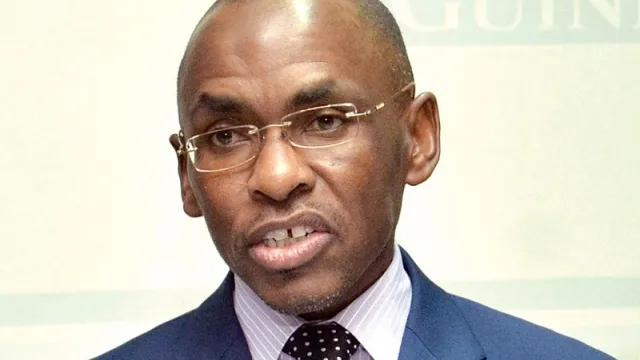Which way for Safaricom as it matures past its teen age?

Which way for Safaricom as it matures past its teen age?
Before his untimely demise, Bob Collymore had spent his last years at Safaricom trying to figure out the future of East Africa’s most profitable company.
He had decided that the company needed to transform into a digital company and not just a mobile telecom and had spent his time trying his hands at e-commerce, a digital music studio, home fiber and he pioneered a payments platforms on which multiple Kenyan innovators automatically relied on to process their backend financial transactions.
Safaricom has become a huge success; financially, Safaricom commands half of the capitalization of the Kenyan stocks market at a whooping Sh1.14 trillion in value for shareholders.
Even in the tough year ending March 2019, Safaricom’s net profit grew by 14.7 percent to Sh63.4 billion on the back of total revenue growing by 7.1 percent to Sh250.96 billion, revenue from voice, M-Pesa, mobile data, and fixed service.
The telco was voted the best company to work for in Brighter Monday’s Best 100 Companies to work report and was also the most respected, admired and desired company by job seekers, in a list that also featured the United Nations and Electricity Generator KenGen.
The company’s success has ensued through constantly disrupting itself to address the concerns of its customers, outside of just making calls.
It partnered with M-Kopa to sell solar to power home solar solutions, and with CarePay and PharmAccess to offer the country’s cheapest and convenient mobile health insurance platform dubbed M-Tiba.
Safaricom further Partnered with Eneza Education to roll out Shupavu 291, a revision study tool tracking a child’s educational progress and launched the revolutionary Agri-business application Digifarm, a platform that offers farmers access to a variety of services including discounted inputs, advice on suitable practices, financing and information on crops and animals.
With the appointment of appointed former East African Breweries Limited (EABL) finance director Mr. Peter Ndegwa as its new CEO, eyes a are fixed on which way Safaricom is headed after 19 years of impressive growth.
An analyst George Bodo says the choice of CEO speaks volumes about where the company wants to go and how it sees itself.
“Going by Brett King's declaration that a bank is what you do, not where you go', Safaricom is a giant retail bank. Safaricom's Board, by going for Peter Ndegwa (who has an impeccable track record in FMCG), doesn't see the company as a retail bank (which I find a bit worrying),” George Bodo said.
Safaricom chairman Nicholas Ng’anga in a statement said that Peter brings a wealth of experience in general management, commercial and business strategy, sales, and finance operations, having spent over 25 years in various roles within the Financial Services and Fast-Moving Consumer Goods sectors in Africa and Europe.
The new Safaricom captain has had a stellar career having spent eight years at EABL before being shipped to Ghana. Before EABL, he was a consultant with PricewaterhouseCoopers based in the UK and in Kenya.
The choice of the first Kenyan, to head the telco and especially one who has spent considerable time selling products to consumers, is seen as a strategic move by Safaricom to claim its identity with the Kenyan consumer.
The company seems to be aligning its products to fit in with the nation’s psyche, for instance, to support Eliud Kipchoge the company went ahead to name its M-Pesa international money transfer service by the Kenyan hero’s name.
At the end of its teen-age, Safaricom is looking for its roots, removing the expiry date for data bundles so that it’s not just a private company seeking profit but a company that listens to its constituency.
And as the Company matures, has it yet found the business model moving it from a mobile service producer to a digital channel for the future? The window through which Kenyans for the next ten years will use to eat sleep and drink.
... ENDS
Special Read:
It’s the month of June, the year 2000.
Michael Joseph, a former chief technical officer at Vodafone Hungary ; had just landed in Kenya to assume the role of Chief Executive Officer of Safaricom – a new telco company that had been hived off from the then state-owned Telkom Kenya back in 1997 ..... Click here to read the full story



